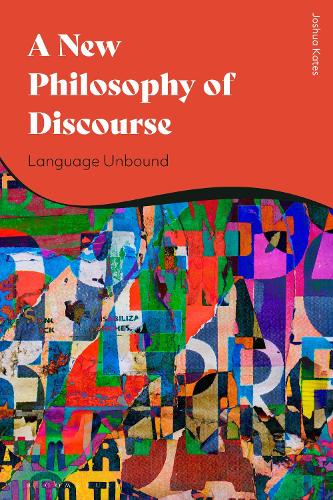
A New Philosophy of Discourse: Language Unbound
(Paperback)
Publishing Details
A New Philosophy of Discourse: Language Unbound
By (Author) Joshua Kates
Bloomsbury Publishing PLC
Bloomsbury Academic
19th May 2022
United Kingdom
Classifications
Tertiary Education
Non Fiction
Literary theory
Topics in philosophy
Translation and language interpretation
Western philosophy from c 1800
401.41
Physical Properties
Paperback
232
Width 154mm, Height 232mm, Spine 18mm
440g
Description
What would happen if structures, forms, and other stand-alone entities thought to comprise our intellectual toolkitwords, meanings, signswere jettisoned How would a work written in a purportedly dead language, like The Iliad, or penned in a foreign tongue be approached if deemed legible without structures such as meaning-bearing signs or grammatical rules A New Philosophy of Discourse charts a novel course in response to these questions, coining an original concept of discourse, or talk!, that Joshua Kates presents as more fundamental than language. In Kates conception of discourse, writing and speech take shape entirely as events, situated within histories, contexts, and traditions themselves always in the making. Combining literary theory, literary criticism, and philosophy, to reveal a new perspective on discourse, Kates focuses on literary criticism, literary texts by Charles Bernstein and Stanley Elkin, and the philosophical writings of Stanley Cavell, Hans-Georg Gadamer, Donald Davidson and Martin Heidegger. This ground-breaking study bridges the analytical/continental divide, by working through concrete problems using novel and extended interpretations with wide-ranging implications for the humanities.
Reviews
Critical and provocative, Joshua Kates moves between the philosophy of language, hermeneutics, literary studies, and deconstruction. Offering a radical and innovative re-envisaging of our understanding of discourse and interpretation, relevant to work across the humanities and social sciences. * Jeff Malpas, Emeritus Distinguished Professor, University of Tasmania , Australia *
An impressive engagement with fundamental problems of language and meaning. Arguing that the foundational use of language is talk, and that all types of discourse derive from talk in its historicity, Joshua Kates boldly explores a vast range of philosophical and literary interpretive frameworks to produce a surprising synthesis of Heidegger and Davidson. * Jonathan Culler, Professor of Comparative Literature, Cornell University, USA *
Author Bio
Joshua Kates is currently Professor of English, and Adjunct Professor, Germanic Studies, at Indiana University, Bloomington, USA. He has published two books on Derridas early writings and their contexts.
